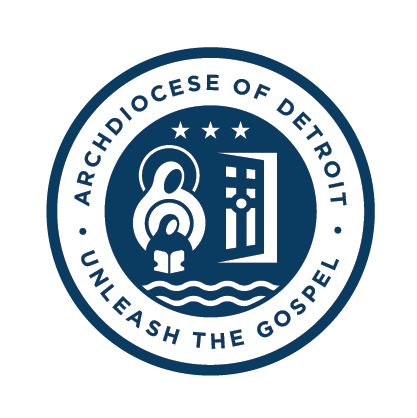Archdiocese of Detroit releases report on response to clerical sexual abuse for 20th Anniversary of Dallas Charter
The Archdiocese of Detroit on May 25 released a report on the local implementation and impact of the Charter for the Protection of Children and Young People, marking the upcoming 20th anniversary of the document focused on reconciliation, healing, accountability, and prevention of clerical sexual abuse in the Church. It is available at aod.org/dallascharter.
The report affirms the archdiocese’s collaborative partnerships with law enforcement, its zero tolerance for abuse allegations in ministry, and its commitment to training thousands of children and more than 118,000 adults in parishes, schools, and other ministries to identify and report situations that could leave a child or other individual vulnerable to possible sexual misconduct.
Data showing when clerical sexual abuse is alleged to have occurred in the archdiocese reflects a sharp decrease in such cases over the last two decades since the Charter was passed. While public awareness has contributed to an increase in reports in recent years, the vast majority of reports concern abuse that occurred prior to 2002. In total, there have been 81 clerics credibly accused of abuse in the Archdiocese of Detroit since 1950, representing roughly 2.12 percent of all clergy (3,826 priests and deacons, including those from religious orders) who served in the Archdiocese of Detroit during the same time.* Two of those individuals were linked to abuse that occurred in the last twenty years, both in the early 2000s.
“By walking in the light of truths exposed twenty years ago, the Archdiocese of Detroit has dedicated these past two decades to driving out the darkness these crimes brought upon our communities,” Archbishop Vigneron said in a letter accompanying the report. “We recognize, however, that one case of abuse – just one victim-survivor of such an act – is one suffering soul too many. We will continue the work of eradicating abuse from our communities and creating safe environments in which everyone can experience the life Christ offers us, confident that the darkness shall not prevail.”
Commonly known as the “Dallas Charter” after the city in which it was adopted, the Charter for the Protection of Children and Young People established for the first time a set of uniform, “zero tolerance” procedures for all (arch)dioceses in the United States regarding the handling of clerical sexual abuse allegations. In addition, the Charter required all U.S. dioceses to put in place practices that would prevent abuse from occurring in the first place.
The Charter was adopted at the annual spring meeting of the United States Conference of Catholic Bishops in June of 2002, following several months of reports nationwide regarding decades of child sexual abuse by Catholic priests.
“The victim-survivors of this abuse bravely bared their wounds, detailed their experiences, and demanded reform. While this was an immensely difficult time for the Church in America, it was good,” Archbishop Vigneron said. “It was good because it laid before God and all society the crimes committed by priests and other Church leaders.
“The revelations and discussions which followed ignited a light to cast out the darkness of sin, paving the way for reform and accountability in the Church, and reconciliation and healing in our communities.”
All materials related to the Archdiocese’s report on the 20th Anniversary of the Dallas Charter are available at www.aod.org/dallascharter.
###
Individuals with knowledge of sexual abuse by clergy or other Church representatives are urged to contact local law enforcement and/or the Michigan Attorney General’s Office at (844) 324-3374 or aginvestigations@michigan.gov.
Individuals also may contact the Archdiocese of Detroit by visiting protect.aod.org or by calling the 24/7 victim assistance line at (866) 343-8055 or by emailing vac@aod.org. There are no time limits or restrictions on individuals wishing to report abuse.
For more information on the Archdiocese of Detroit’s response to abuse and commitment to preventing future incidents from occurring in our communities, please visit protect.aod.org.


